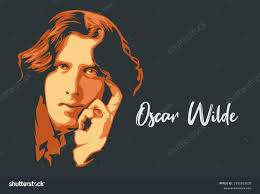In the realm of classic literature, few works stand as tall and enduring as The Importance of Being Earnest by Oscar Wilde. Wilde, a master of wit and satire, invites readers into a world where trivialities take center stage, revealing profound insights beneath the surface. This timeless play, both comedic and thought-provoking, continues to captivate audiences and offer a glimpse into the complexities of Victorian society.
The Art of Satire: Wilde’s brilliance lies in his ability to use humor as a sharp tool for social commentary. “The Importance of Being Earnest” satirizes the superficial values of the Victorian upper class, highlighting the absurdity of societal expectations. Through clever dialogue and farcical situations, Wilde exposes the frivolity that often masks deeper issues in the pursuit of social standing.
The Importance of Names: Central to the play is Wilde’s exploration of the significance of names. The use of the pseudonym “Ernest” becomes a symbol of the characters’ desire to escape societal constraints and indulge in a more exciting, albeit deceitful, life. This clever wordplay adds a layer of complexity to the narrative, challenging the audience to question the authenticity of the characters and, by extension, the society they inhabit.
Gender and Social Roles: Wilde challenges traditional gender roles and expectations, especially through the character of Lady Bracknell. Her obsession with social status and the perceived suitability of potential suitors satirizes the rigid conventions of the time. By pushing against these norms, Wilde opens a dialogue about societal expectations, paving the way for future generations to question and redefine traditional gender roles.
Epigrams and Quotable Wisdom: The Importance of Being Earnest by Oscar wilde is a treasure trove of Wilde’s famous epigrams—concise, witty, and often profound statements that encapsulate universal truths. These gems of wisdom pepper the play, offering readers and audiences timeless reflections on life, love, and society. Wilde’s ability to distill complex ideas into memorable phrases adds a layer of accessibility to the play’s overarching themes.
Conclusion: As we delve into the pages of The Importance of Being Earnest by Oscar Wilde we embark on a journey that transcends time and societal norms. Wilde’s razor-sharp wit serves as a mirror, reflecting the follies of his era while challenging us to examine our own. Through humor and satire, he invites us to ponder the essence of earnestness and the intricacies of the human condition. Indeed, the importance of being earnest, as presented by Oscar Wilde, echoes across the ages, reminding us of the enduring power of literary brilliance.





